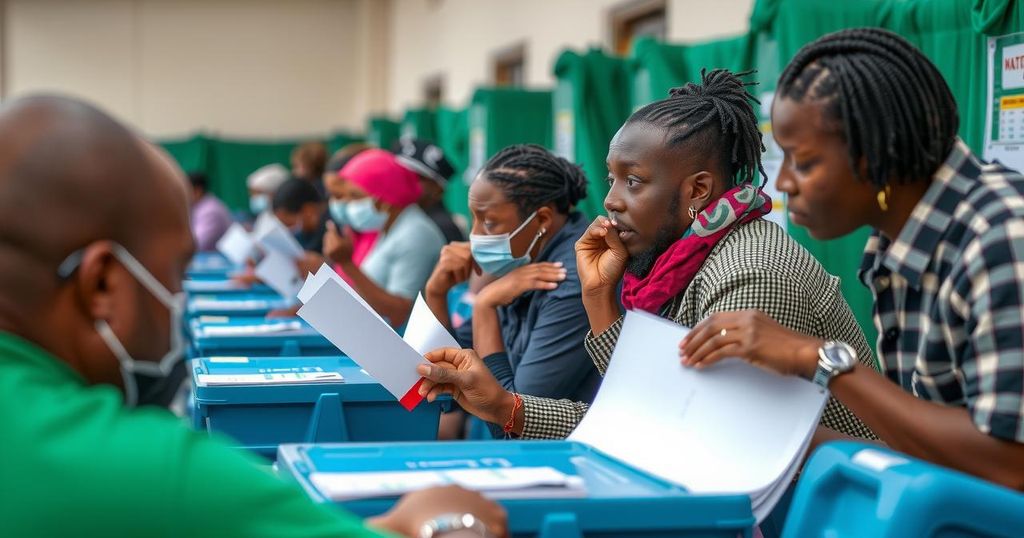Comoros voters are casting ballots for a 33-seat parliament amid allegations of previous electoral irregularities under President Azali Assoumani. Approximately 338,000 people are registered to vote, with nearly 100 candidates contesting the election. Some opposition parties demand a boycott, while others advocate for participation to expose governmental flaws, citing potential political dynasties as a concern.
On Sunday, voters in Comoros are participating in the electoral process to select members for the 33-seat parliament of the Indian Ocean archipelago. This election follows President Azali Assoumani’s re-election last year, which was met with allegations of significant voting irregularities, claims that the ruling party has refuted. With approximately 338,000 registered voters and polling stations having opened early, this event is pivotal for the country’s political landscape. Previously, parliamentary elections were held in January 2020, and nearly 100 candidates have been approved by the nation’s Supreme Court to compete.
The political environment in Comoros has been turbulent, with accusations of authoritarianism directed at President Azali Assoumani, who has held power since seizing it through a coup in 1999. His governance has been characterized by controversial elections, and the latest allegations of electoral malpractice have intensified scrutiny over the electoral process. Assoumani’s desire for dynastic succession has been noted, particularly following the granting of extensive powers to his son, Nour El-Fath, indicating a potential plan for a hereditary transition in leadership.
In summary, the ongoing elections in Comoros represent a crucial moment for the archipelago, reflecting the public’s response to President Assoumani’s long-standing rule and the political resistance posed by various opposition factions. With significant allegations overshadowing the electoral process, the outcomes of these elections may have profound implications for the nation’s democratic trajectory and political stability.
Original Source: www.singletonargus.com.au






